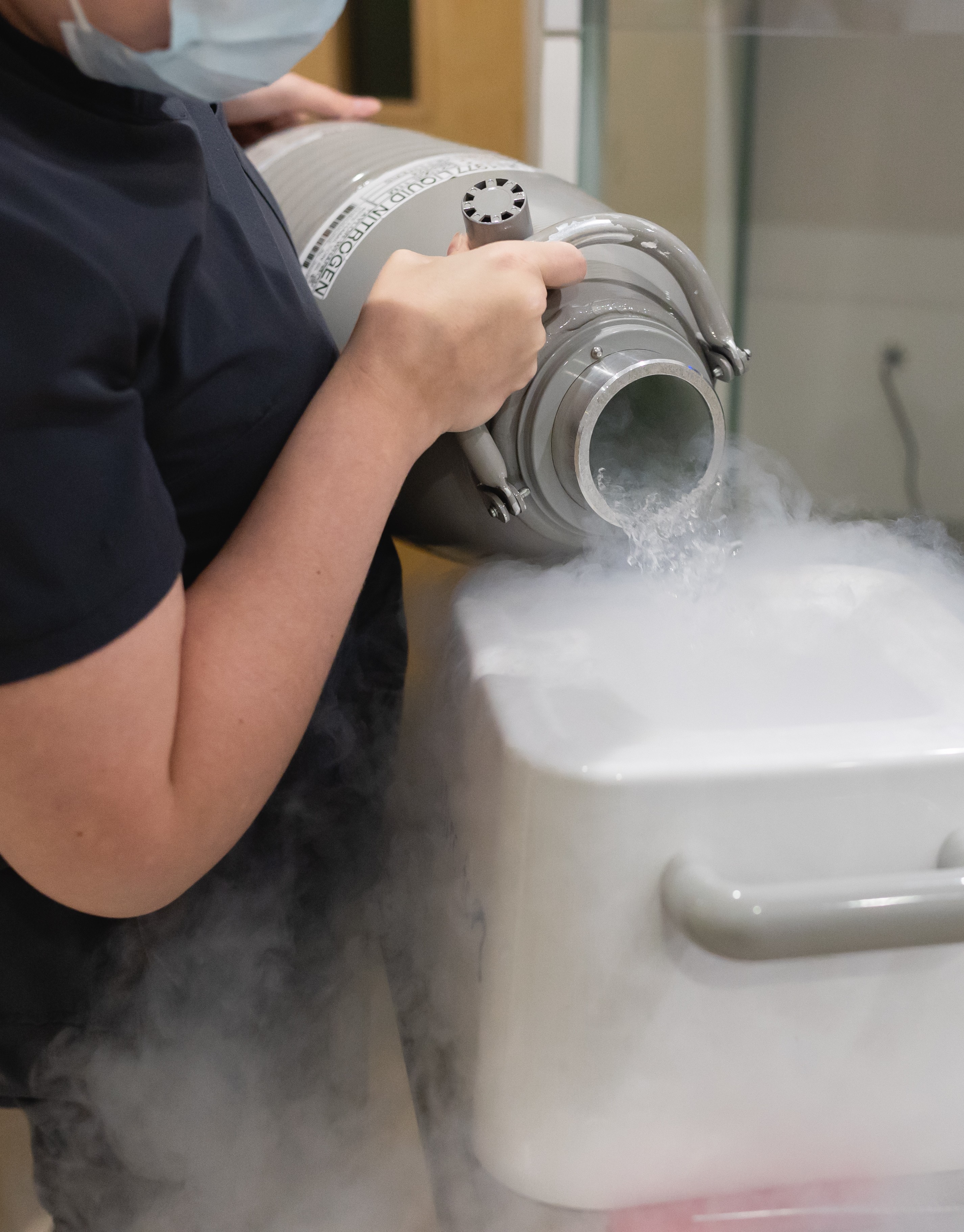
Sperm Freezing
What is Fertility Preservation?
Fertility preservation refers to the cryopreservation and storage of reproductive cells (gametes- either eggs or sperm) or embryos (eggs fertilized by sperm) for future use. The advanced technique of vitrification, or flash-freezing, has improved the ability to efficiently preserve eggs and embryos for best chances of future success.
Who Should Consider Fertility Preservation?
-
Individuals diagnosed with cancer in their reproductive years should consider fertility preservation prior to starting treatment.
-
Chemotherapeutic agents can be toxic to reproductive organs, specifically ovaries and testicles where the reproductive cells are produced and stored. Preserving gametes prior to treatment can give patients peace of mind that they can still start or expand their family in the future.
-
Individuals who choose to delay becoming pregnant for social reasons—career choices, continuing education, lack of partner, or other personal reasons—and who want to give themselves access to “younger” eggs allowing for higher chances at pregnancy.
-
Individuals with autoimmune disorders who must be on medications that may destroy reproductive function.
-
Individuals who have been advised to have their ovaries removed (for example, due to severe endometriosis.)
-
Transgender individuals who wish to preserve genetic material prior to transition.
-
Individuals who choose to delay reproducing until later in life or are considering a vasectomy.


What is Involved in Freezing Sperm?
-
It is preferable to collect and store sperm prior to the initiation of any treatment which may impact sperm. With cancer treatment, ideally you want to freeze before; however, samples collected after starting certain forms of treatment have been shown to be viable.
-
The first step is to consult with one of our providers to discuss risks and benefits to sperm freezing. Bloodwork for infectious disease testing is required prior to sperm banking.
-
Prior to collection, individuals should abstain from ejaculation for 2-5 days.
-
Individuals can choose to collect several times in order to bank more samples (it may take more than one sample for a future cycle).
Depending on how many samples you freeze, options for future conception may include IUI or IVF.

